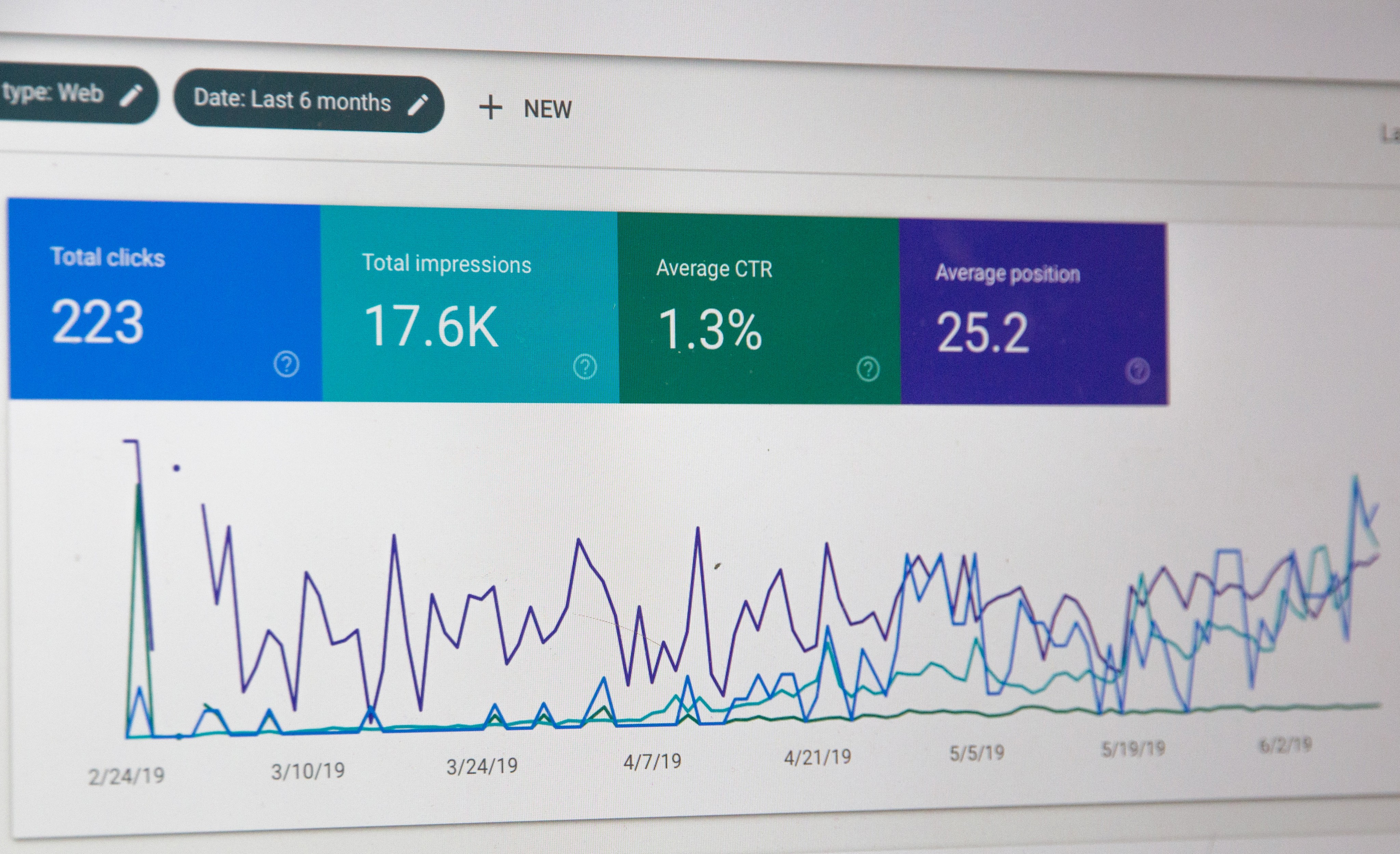
Revolutionizing Keyword Research with ChatGPT: AI's Role in SEO Strategy
Revolutionizing Keyword Research with ChatGPT: AI's Role in SEO Strategy
Revolutionizing Keyword Research with ChatGPT: AI's Role in SEO Strategy
Apr 21, 2023


Introduction
In the ever-evolving landscape of search engine optimization (SEO), keyword research remains a fundamental pillar of an effective digital marketing strategy. Traditionally, keyword research involved manual analysis, brainstorming, and trial-and-error to identify the right keywords to target. However, with the advent of AI-powered technologies like ChatGPT, businesses can now revolutionize their keyword research process and gain a competitive edge. In this article, we will explore how ChatGPT, an advanced AI language model, can transform keyword research, provide valuable insights, and help businesses enhance their SEO strategies.
The Evolution of Keyword Research
Traditional Keyword Research Challenges
Traditional keyword research methods often involved labor-intensive processes and were susceptible to bias and guesswork. Marketers would rely on their own understanding and assumptions about user intent, leading to suboptimal keyword selection. Moreover, manually analyzing vast amounts of data and identifying emerging trends was time-consuming and inefficient.
The Role of AI in Keyword Research
AI-powered technologies like ChatGPT are revolutionizing keyword research by leveraging their natural language processing capabilities and vast knowledge base. By analyzing massive datasets, user queries, and search patterns, ChatGPT can provide valuable insights and assist in identifying high-potential keywords with precision and efficiency.
Leveraging ChatGPT for Effective Keyword Research
1. Generating Keyword Ideas
ChatGPT can generate a wealth of keyword ideas by analyzing existing content, user queries, and search trends. Simply provide the AI model with a topic or seed keyword, and it can produce a list of related keywords that align with user intent and search demand. This helps businesses uncover untapped keyword opportunities and broaden their keyword targeting.
2. Understanding User Intent
User intent plays a critical role in effective keyword targeting. ChatGPT can analyze user queries and provide insights into the underlying intent. By understanding user intent, businesses can optimize their content to align with the needs and expectations of their target audience, driving higher engagement and conversion rates.
3. Analyzing Competitor Strategies
ChatGPT can help businesses gain a competitive advantage by analyzing competitor strategies. By inputting competitor URLs or keywords, ChatGPT can identify the keywords and topics that competitors are targeting successfully. This enables businesses to refine their own keyword targeting and develop content that outperforms their competitors in search engine rankings.
4. Identifying Long-Tail Keywords
Long-tail keywords are specific, often less competitive, search queries that can drive highly targeted traffic to a website. ChatGPT can assist in identifying long-tail keyword opportunities by analyzing user queries and suggesting relevant long-tail variations. Incorporating long-tail keywords into content can improve search visibility and attract valuable organic traffic.
5. Monitoring Keyword Performance
Keyword research is an ongoing process, and monitoring the performance of targeted keywords is crucial. ChatGPT can analyze keyword performance data, search rankings, and user engagement metrics to provide insights into the effectiveness of keyword targeting strategies. Businesses can then refine their SEO strategies based on these insights for continuous improvement.
Frequently Asked Questions
Q: Is ChatGPT suitable for all industries?
A: Yes, ChatGPT can be used in keyword research across various industries. Its ability to analyze user queries, search patterns, and content makes it adaptable to different domains and provides valuable insights for keyword optimization.
Q: How can ChatGPT help in identifying keyword trends?
A: ChatGPT can analyze large volumes of data, including search trends, user queries, and social media discussions, to identify emerging keyword trends. This helps businesses stay ahead of the curve and optimize their content for evolving user search behaviors.
Q: Can ChatGPT replace manual keyword research entirely?
A: While ChatGPT enhances and streamlines the keyword research process, it's still important to combine AI insights with human expertise. The collaboration between AI and human marketers allows for more comprehensive and nuanced keyword strategies.
Conclusion
Keyword research is a foundational element of a successful SEO strategy, and the advent of AI technologies like ChatGPT has revolutionized the way businesses approach this process. By leveraging ChatGPT's natural language processing capabilities, businesses can generate keyword ideas, understand user intent, analyze competitor strategies, identify long-tail keywords, and monitor keyword performance more effectively. Embracing AI-powered keyword research empowers businesses to stay ahead in the dynamic digital landscape, drive organic traffic, and achieve higher search engine rankings.
Key Phrase: "AI-Powered Keyword Research: Unleashing the Potential of ChatGPT for SEO Strategy"
Tags: ChatGPT, keyword research, SEO strategy, AI in marketing, user intent
Introduction
In the ever-evolving landscape of search engine optimization (SEO), keyword research remains a fundamental pillar of an effective digital marketing strategy. Traditionally, keyword research involved manual analysis, brainstorming, and trial-and-error to identify the right keywords to target. However, with the advent of AI-powered technologies like ChatGPT, businesses can now revolutionize their keyword research process and gain a competitive edge. In this article, we will explore how ChatGPT, an advanced AI language model, can transform keyword research, provide valuable insights, and help businesses enhance their SEO strategies.
The Evolution of Keyword Research
Traditional Keyword Research Challenges
Traditional keyword research methods often involved labor-intensive processes and were susceptible to bias and guesswork. Marketers would rely on their own understanding and assumptions about user intent, leading to suboptimal keyword selection. Moreover, manually analyzing vast amounts of data and identifying emerging trends was time-consuming and inefficient.
The Role of AI in Keyword Research
AI-powered technologies like ChatGPT are revolutionizing keyword research by leveraging their natural language processing capabilities and vast knowledge base. By analyzing massive datasets, user queries, and search patterns, ChatGPT can provide valuable insights and assist in identifying high-potential keywords with precision and efficiency.
Leveraging ChatGPT for Effective Keyword Research
1. Generating Keyword Ideas
ChatGPT can generate a wealth of keyword ideas by analyzing existing content, user queries, and search trends. Simply provide the AI model with a topic or seed keyword, and it can produce a list of related keywords that align with user intent and search demand. This helps businesses uncover untapped keyword opportunities and broaden their keyword targeting.
2. Understanding User Intent
User intent plays a critical role in effective keyword targeting. ChatGPT can analyze user queries and provide insights into the underlying intent. By understanding user intent, businesses can optimize their content to align with the needs and expectations of their target audience, driving higher engagement and conversion rates.
3. Analyzing Competitor Strategies
ChatGPT can help businesses gain a competitive advantage by analyzing competitor strategies. By inputting competitor URLs or keywords, ChatGPT can identify the keywords and topics that competitors are targeting successfully. This enables businesses to refine their own keyword targeting and develop content that outperforms their competitors in search engine rankings.
4. Identifying Long-Tail Keywords
Long-tail keywords are specific, often less competitive, search queries that can drive highly targeted traffic to a website. ChatGPT can assist in identifying long-tail keyword opportunities by analyzing user queries and suggesting relevant long-tail variations. Incorporating long-tail keywords into content can improve search visibility and attract valuable organic traffic.
5. Monitoring Keyword Performance
Keyword research is an ongoing process, and monitoring the performance of targeted keywords is crucial. ChatGPT can analyze keyword performance data, search rankings, and user engagement metrics to provide insights into the effectiveness of keyword targeting strategies. Businesses can then refine their SEO strategies based on these insights for continuous improvement.
Frequently Asked Questions
Q: Is ChatGPT suitable for all industries?
A: Yes, ChatGPT can be used in keyword research across various industries. Its ability to analyze user queries, search patterns, and content makes it adaptable to different domains and provides valuable insights for keyword optimization.
Q: How can ChatGPT help in identifying keyword trends?
A: ChatGPT can analyze large volumes of data, including search trends, user queries, and social media discussions, to identify emerging keyword trends. This helps businesses stay ahead of the curve and optimize their content for evolving user search behaviors.
Q: Can ChatGPT replace manual keyword research entirely?
A: While ChatGPT enhances and streamlines the keyword research process, it's still important to combine AI insights with human expertise. The collaboration between AI and human marketers allows for more comprehensive and nuanced keyword strategies.
Conclusion
Keyword research is a foundational element of a successful SEO strategy, and the advent of AI technologies like ChatGPT has revolutionized the way businesses approach this process. By leveraging ChatGPT's natural language processing capabilities, businesses can generate keyword ideas, understand user intent, analyze competitor strategies, identify long-tail keywords, and monitor keyword performance more effectively. Embracing AI-powered keyword research empowers businesses to stay ahead in the dynamic digital landscape, drive organic traffic, and achieve higher search engine rankings.
Key Phrase: "AI-Powered Keyword Research: Unleashing the Potential of ChatGPT for SEO Strategy"
Tags: ChatGPT, keyword research, SEO strategy, AI in marketing, user intent
Introduction
In the ever-evolving landscape of search engine optimization (SEO), keyword research remains a fundamental pillar of an effective digital marketing strategy. Traditionally, keyword research involved manual analysis, brainstorming, and trial-and-error to identify the right keywords to target. However, with the advent of AI-powered technologies like ChatGPT, businesses can now revolutionize their keyword research process and gain a competitive edge. In this article, we will explore how ChatGPT, an advanced AI language model, can transform keyword research, provide valuable insights, and help businesses enhance their SEO strategies.
The Evolution of Keyword Research
Traditional Keyword Research Challenges
Traditional keyword research methods often involved labor-intensive processes and were susceptible to bias and guesswork. Marketers would rely on their own understanding and assumptions about user intent, leading to suboptimal keyword selection. Moreover, manually analyzing vast amounts of data and identifying emerging trends was time-consuming and inefficient.
The Role of AI in Keyword Research
AI-powered technologies like ChatGPT are revolutionizing keyword research by leveraging their natural language processing capabilities and vast knowledge base. By analyzing massive datasets, user queries, and search patterns, ChatGPT can provide valuable insights and assist in identifying high-potential keywords with precision and efficiency.
Leveraging ChatGPT for Effective Keyword Research
1. Generating Keyword Ideas
ChatGPT can generate a wealth of keyword ideas by analyzing existing content, user queries, and search trends. Simply provide the AI model with a topic or seed keyword, and it can produce a list of related keywords that align with user intent and search demand. This helps businesses uncover untapped keyword opportunities and broaden their keyword targeting.
2. Understanding User Intent
User intent plays a critical role in effective keyword targeting. ChatGPT can analyze user queries and provide insights into the underlying intent. By understanding user intent, businesses can optimize their content to align with the needs and expectations of their target audience, driving higher engagement and conversion rates.
3. Analyzing Competitor Strategies
ChatGPT can help businesses gain a competitive advantage by analyzing competitor strategies. By inputting competitor URLs or keywords, ChatGPT can identify the keywords and topics that competitors are targeting successfully. This enables businesses to refine their own keyword targeting and develop content that outperforms their competitors in search engine rankings.
4. Identifying Long-Tail Keywords
Long-tail keywords are specific, often less competitive, search queries that can drive highly targeted traffic to a website. ChatGPT can assist in identifying long-tail keyword opportunities by analyzing user queries and suggesting relevant long-tail variations. Incorporating long-tail keywords into content can improve search visibility and attract valuable organic traffic.
5. Monitoring Keyword Performance
Keyword research is an ongoing process, and monitoring the performance of targeted keywords is crucial. ChatGPT can analyze keyword performance data, search rankings, and user engagement metrics to provide insights into the effectiveness of keyword targeting strategies. Businesses can then refine their SEO strategies based on these insights for continuous improvement.
Frequently Asked Questions
Q: Is ChatGPT suitable for all industries?
A: Yes, ChatGPT can be used in keyword research across various industries. Its ability to analyze user queries, search patterns, and content makes it adaptable to different domains and provides valuable insights for keyword optimization.
Q: How can ChatGPT help in identifying keyword trends?
A: ChatGPT can analyze large volumes of data, including search trends, user queries, and social media discussions, to identify emerging keyword trends. This helps businesses stay ahead of the curve and optimize their content for evolving user search behaviors.
Q: Can ChatGPT replace manual keyword research entirely?
A: While ChatGPT enhances and streamlines the keyword research process, it's still important to combine AI insights with human expertise. The collaboration between AI and human marketers allows for more comprehensive and nuanced keyword strategies.
Conclusion
Keyword research is a foundational element of a successful SEO strategy, and the advent of AI technologies like ChatGPT has revolutionized the way businesses approach this process. By leveraging ChatGPT's natural language processing capabilities, businesses can generate keyword ideas, understand user intent, analyze competitor strategies, identify long-tail keywords, and monitor keyword performance more effectively. Embracing AI-powered keyword research empowers businesses to stay ahead in the dynamic digital landscape, drive organic traffic, and achieve higher search engine rankings.
Key Phrase: "AI-Powered Keyword Research: Unleashing the Potential of ChatGPT for SEO Strategy"
Tags: ChatGPT, keyword research, SEO strategy, AI in marketing, user intent
